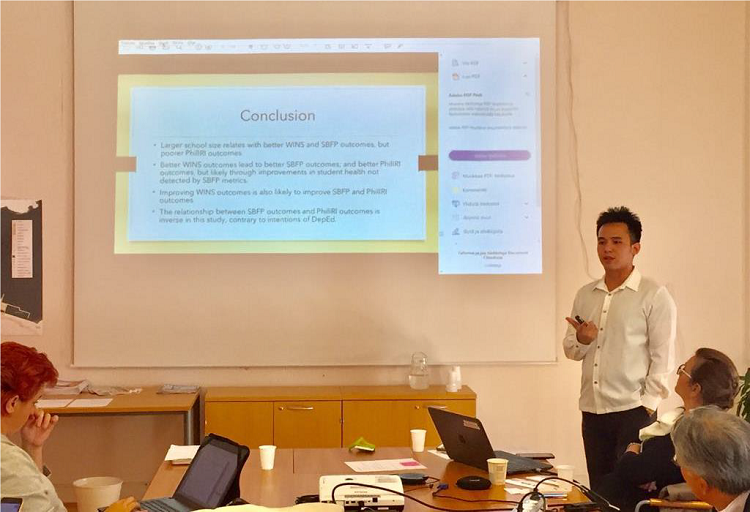
HEALTH AND SANITATION. Medical student Benedicto Aguilar presents his paper at the International Dry Toilet Conference in Tampere, Finland. Supplied photo.
“One in every five children in Cagayan de Oro City suffers from under-nutrition,” said Benedicto “Ben” P Aguilar, a senior medical student at Xavier University - Ateneo de Cagayan's Dr Jose P Rizal School of Medicine, during his presentation at the recently-concluded International Dry Toilet Conference held in Tampere, Finland.
Aguilar’s paper, titled “Winning Back the Health of Filipino Schoolchildren,” focused on studying the correlations among existing Department of Education (DepEd) programs, namely, "Wash in Schools Program (WINS)," "School-based Feeding Program (SBFP)," and the "Philippine Informal Reading Inventory (PhilRI)."
Associations were found in the following areas: SBFP Improvement and WINS water, sanitation, hygiene, and deworming scores; PhilIRI Improvement: WINS sanitation, deworming, health education, and overall scores, and SBFP improvement; and overall school population and WINS water and overall scores.
His study showed that larger school size relates to better WINS and SBFP outcomes, but poorer in PhilRI outcomes. Poorer PhilRI outcomes are due to a larger student-teacher ratio in larger schools.
He concluded that better washing and sanitation facilities and programs in schools (for instance, WINS program) are likely to improve the feeding program outcomes, as well as meeting the targets of the reading inventory.
"More hygienic schools have fewer undernourished children," he said.
The study added: "Better outcomes for undernourished students in schools was, paradoxically, related to poorer overall school reading outcomes."
With these results, Aguilar recommended that DepEd might want to conduct a multivariate analysis by formulating an evaluation process of each program but also keeping in check the outcomes of other programs. This approach would help ensure a holistic outcome for schoolchildren in the Philippines.∎